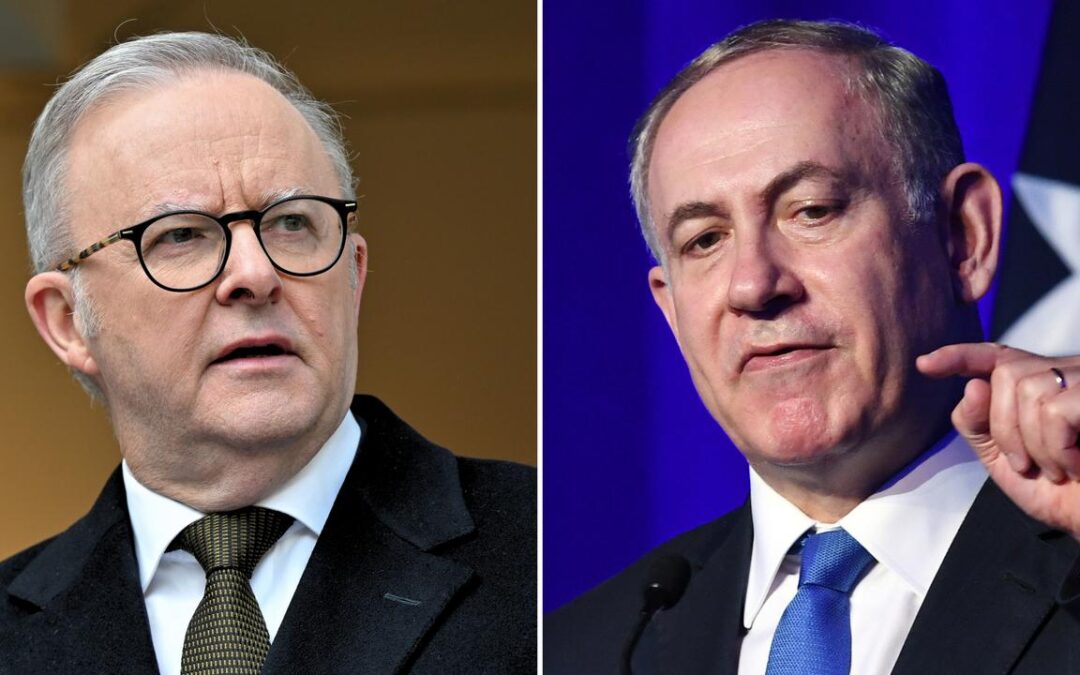
Jewish group decries ‘reckless’ Netanyahu attacks on PM
Jewish groups have accused Israeli Prime Minister Benjamin Netanyahu of endangering the community as a diplomatic stoush between Australia and Israel continues.
Mr Netanyahu used a television appearance to continue criticism of Prime Minister Anthony Albanese after the federal government announced plans to recognise Palestinian statehood.
Mr Netanyahu said that amounted to siding with Hamas, a listed terrorist organisation that controls the devastated enclave.
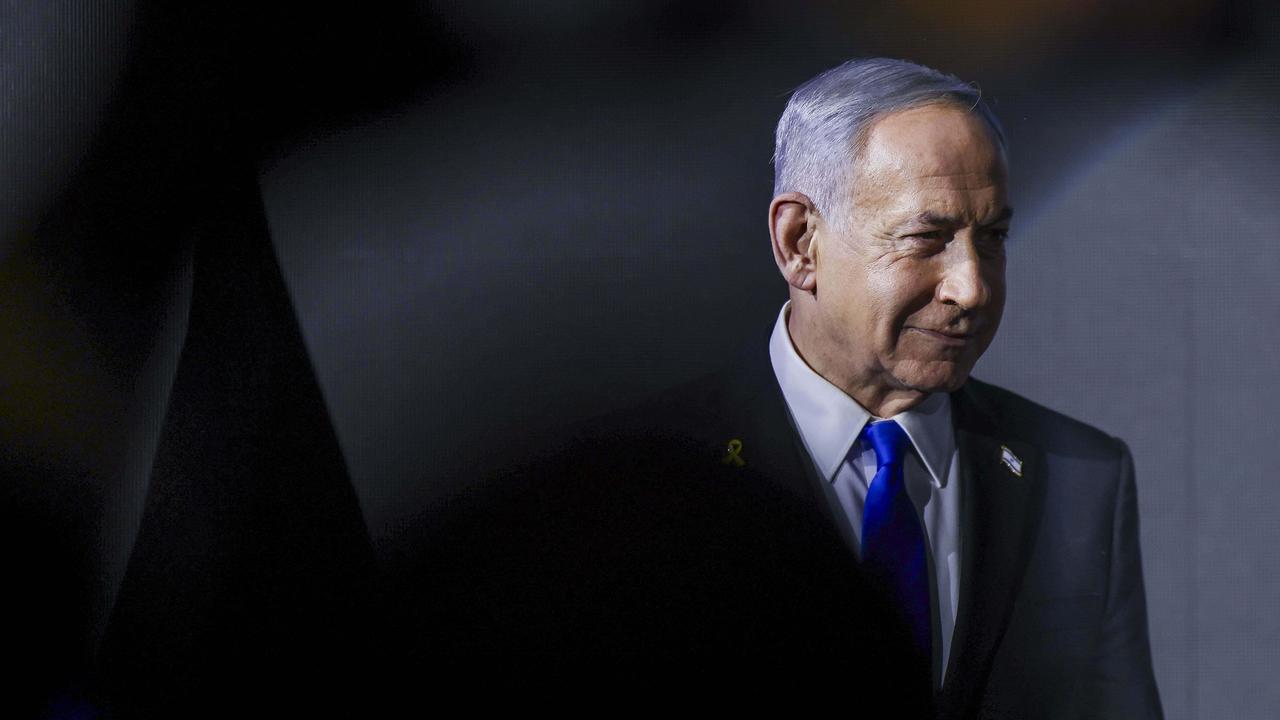
“I’m sure he has a reputable record as a public servant, but I think his record is forever tarnished by the weakness that he showed in the face of these Hamas terrorist monsters,” Mr Netanyahu told Sky News on Thursday.
“When the worst terrorist organisation on earth … which murdered women, raped them, beheaded men and burnt babies alive in front of their parents and took hundreds of hostages, when these people congratulate the prime minister of Australia, you know something is wrong.”
But Jewish Council of Australia executive officer Max Kaiser said the verbal attacks from the Israeli prime minister did not represent the views of the community.
“Benjamin Netanyahu does not speak for Australian Jews. His attack on Prime Minister Albanese is baseless, reckless and endangers our community,” he told AAP.
“We are appalled but not surprised that Netanyahu would try to exploit fears in our community to defend Israel’s ongoing atrocities.”
Australia/Israel and Jewish Affairs Council public affairs director Jamie Hyams said he could see where the Israeli prime minister was coming from in his critique of Mr Albanese.
“I can understand Mr Netanyahu’s anger. I don’t necessarily agree with all of his tactics, but I can understand his anger because there has been a lot of flak coming from Australia’s government towards Israel and towards him personally,” Mr Hyams told ABC Radio.
“As a very patriotic Australian, and also as someone who loves Israel, it breaks my heart to see our two great countries that have had such a productive and friendly relationship for so many years come to this point.”
It comes as Australia joined with allies in rebuking Israel over its plan to build illegal settlements in the West Bank
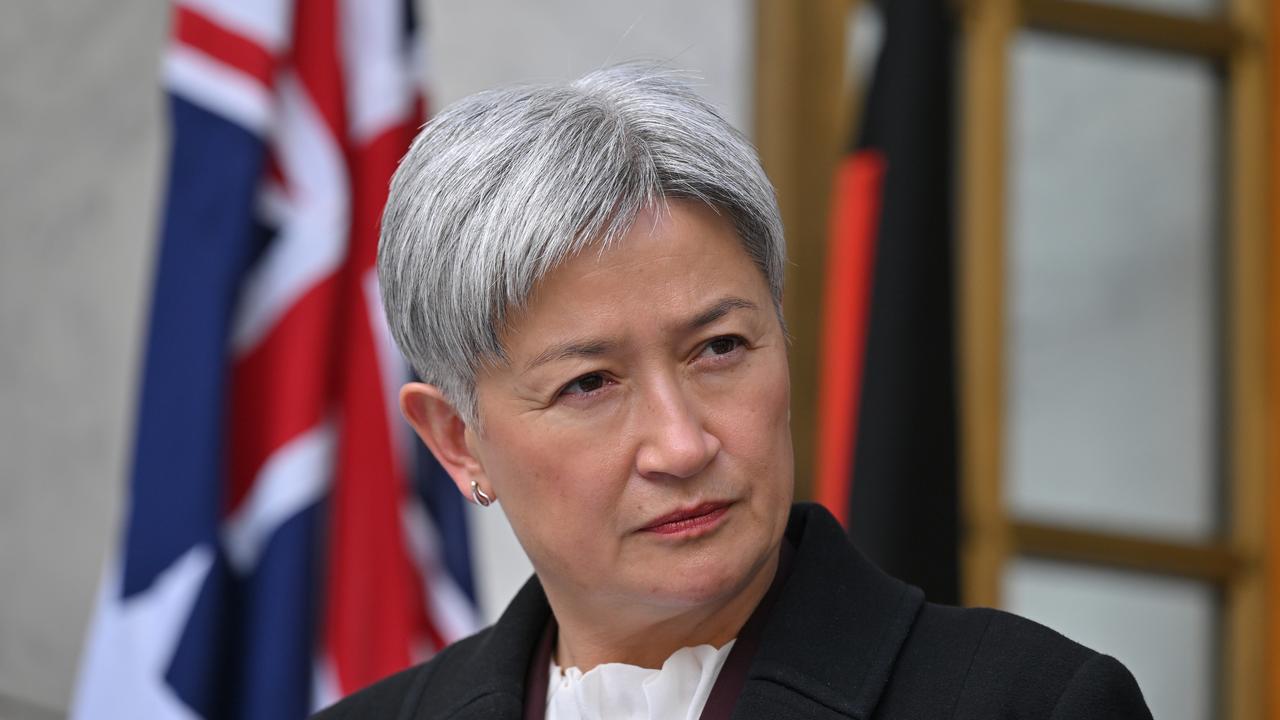
Foreign Minister Penny Wong released a joint statement overnight – alongside her counterparts from 20 countries, including Canada, Italy, Japan and the UK – calling on Israel to immediately reverse its decision to construct 3400 homes in the E1 area east of Jerusalem.
The plan, devised by far-right Israeli Finance Minister Bezalel Smotrich, would effectively cut the Palestinian-controlled West Bank in two and would violate international law.
“Minister Smotrich says this plan will make a two-state solution impossible by dividing any Palestinian state and restricting Palestinian access to Jerusalem,” the joint statement said.
“This brings no benefits to the Israeli people. Instead, it risks undermining security and fuels further violence and instability, taking us further away from peace.”
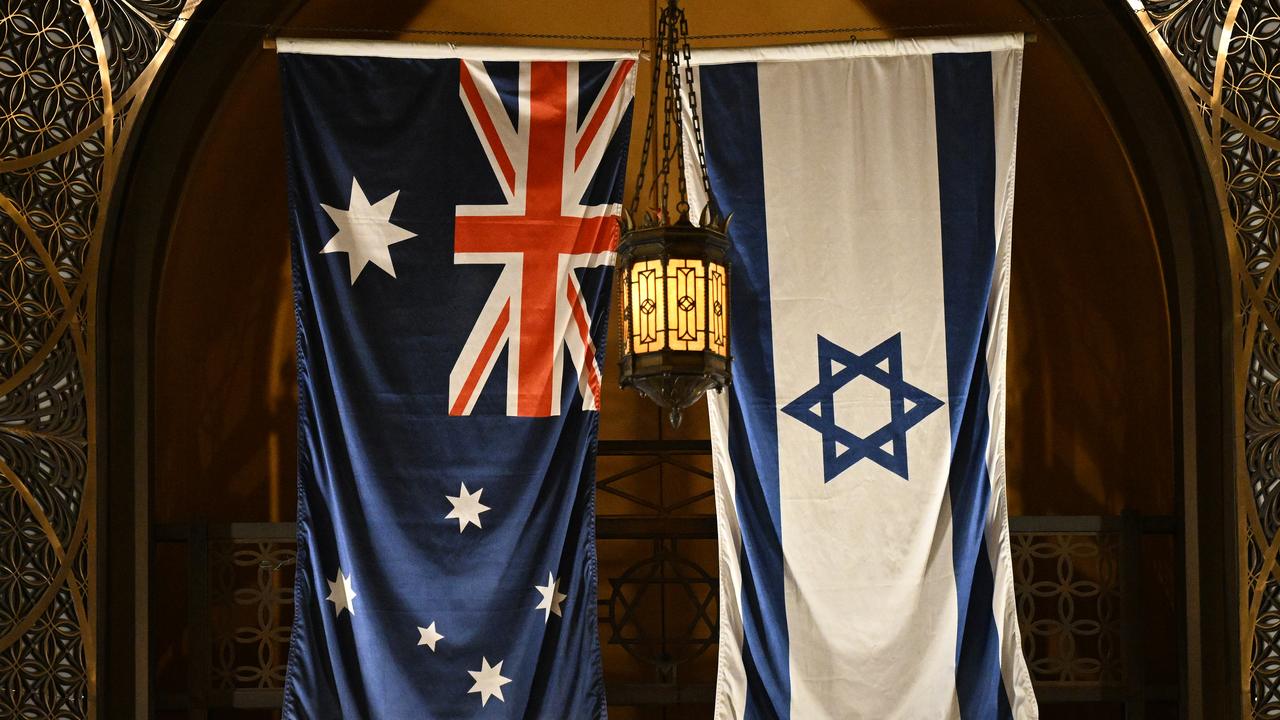
The statement represents another divergence in policy with the US, which remains Israel’s most steadfast supporter
Diplomatic ties hit an all-time low this week after the federal government denied a visa to far-right Israeli politician Simcha Rothman, blocking him from entering the country for a speaking tour, following provocative comments.
Israel retaliated by cancelling the visas of three Australian diplomats engaged with the Palestinian Authority.
“(Australia and Israel) had a great relationship over the years,” Mr Netanyahu said.
“I think it’s gone astray because leaders did not show the strength and conviction they should have, when we’re fighting the war of Western civilisation against these barbarians.”
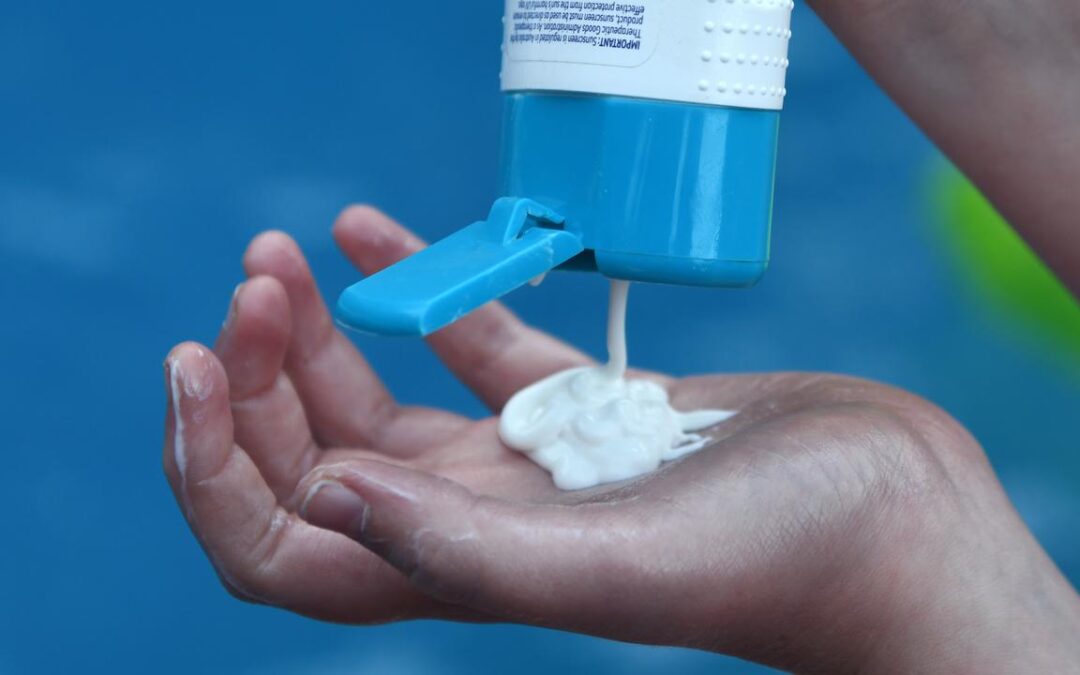
Aussie sunscreen product rubbed out after testing fail
A popular Australian sunscreen brand has withdrawn one of its products after tests revealed it failed to provide consistent protection.
Ultra Violette came under fire in June when consumer agency Choice tested a range of sunscreens, discovering the brand’s Lean Screen 50+ Mattifying Zinc Skinscreen scored the lowest SPF rating of four.
The company disputed Choice’s testing methodology and results, saying it followed Therapeutic Goods Administration guidelines and did not arbitrarily slap on a SPF 50+ label.
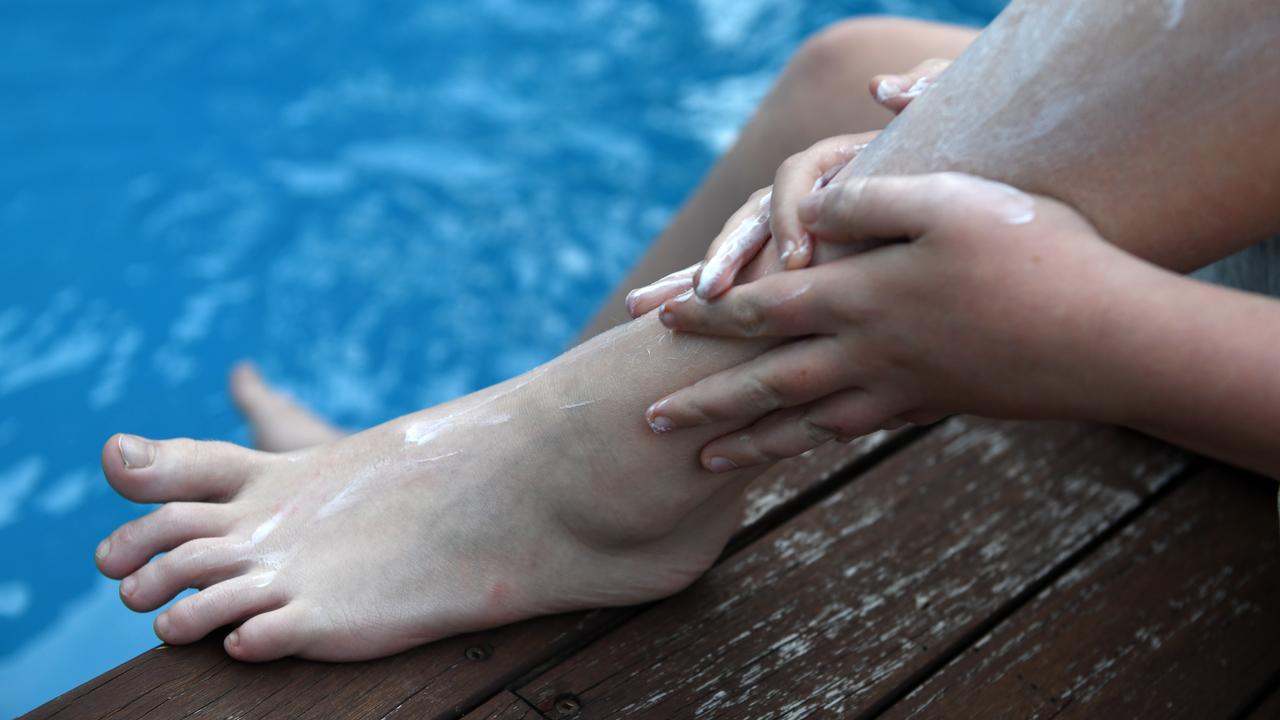
However, Ultra Violette on Friday revealed independent lab tests following the Choice controversy uncovered Lean Screen had “significant atypical variability” in its SPF protection.
Across eight tests, the product returned a SPF rating of 4, 10, 21, 26, 33, 60, 61 and 64 when it should have consistently been above 50.
“That wasn’t good enough for us, and it isn’t good enough for you,” co-founders Rebecca Jefferd and Ava Chandler-Matthews said in a statement.
The brand decided to remove the product from the market effective immediately, with customers able to request a refund and product voucher.
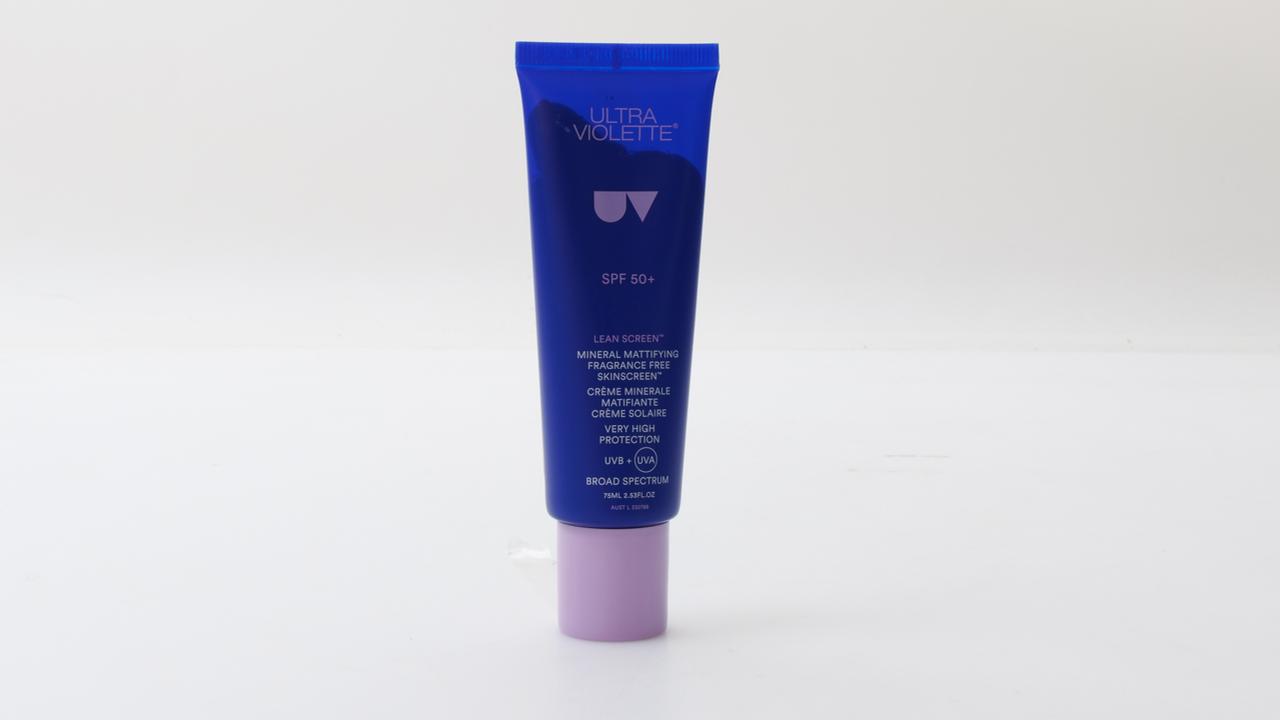
“We are deeply sorry that one of our products has fallen short of the standards we pride ourselves on and that you have come to expect of us,” the statement said.
It said Lean Screen was created by a third-party manufacturer, which the company would no long use.
Ultra Violette said it would be working with a new network of testing facilities, implementing a minimum of two independent lab tests before the launch of a new product and increasing retesting to every 18 months.
“Trust is built and rebuilt over time, and we know we have work to do,” the founders said.
Ultra Violette maintained additional testing on its other products had “reinforced” confidence in the rest of its line.
Choice chief executive Ashley de Silva said the withdrawal of Ultra Violette’s product confirmed there was a “clear problem” with how sunscreen was regulated and tested in Australia.
“Without Choice’s investigation, Ultra Violette’s Lean Screen would still be on shelves, despite the fact that it does not provide anywhere near the amount of sun protection it claims to,” he said.
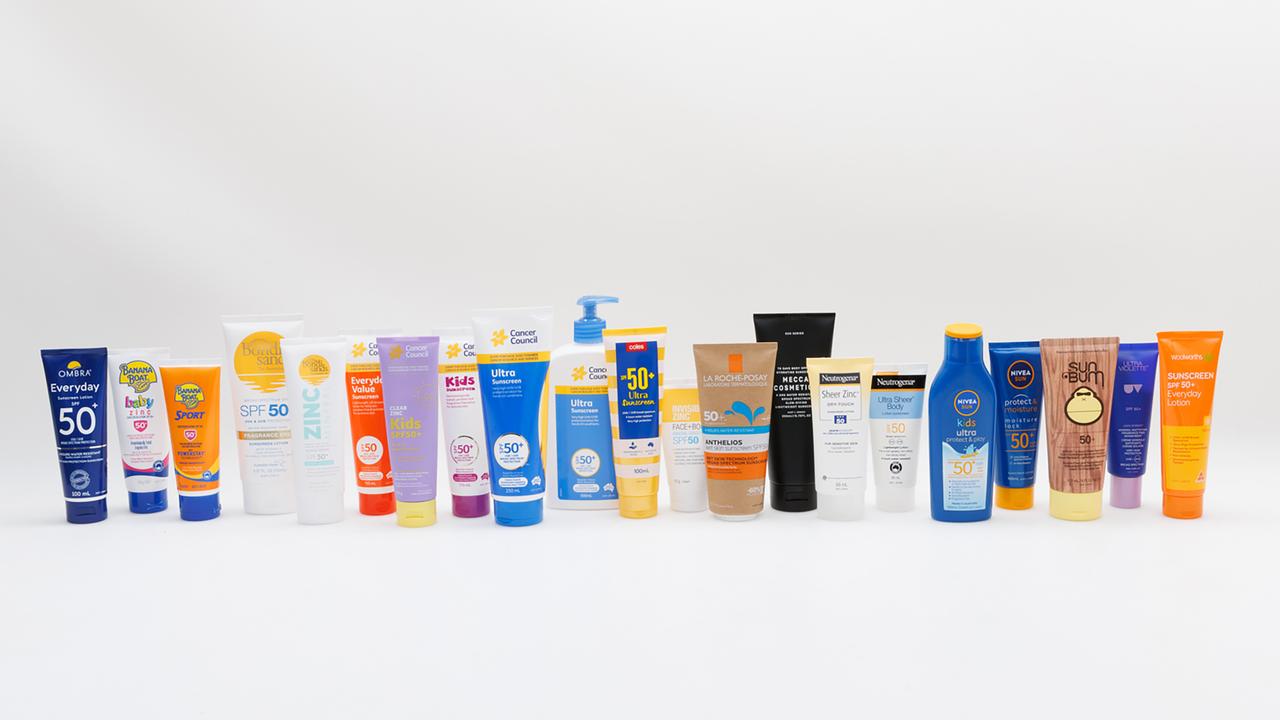
The Choice investigation earlier this year also showed Cancer Council Ultra Sunscreen 50+ tested at a SPF rating of 24, Neutrogena Sheer Zinc Dry-Touch Lotion SPF 50 also at 24 and Bondi Sands SPF 50+ Zinc Mineral Body Lotion at 26.
Mr de Silva called on the Therapeutic Goods Administration to provide an update on its investigation into the SPF rating failures of multiple brands.
“Ultra Violette’s product may not be the only product that is affected and consumers deserve to know whether they can continue to trust SPF claims in Australia,” he said.
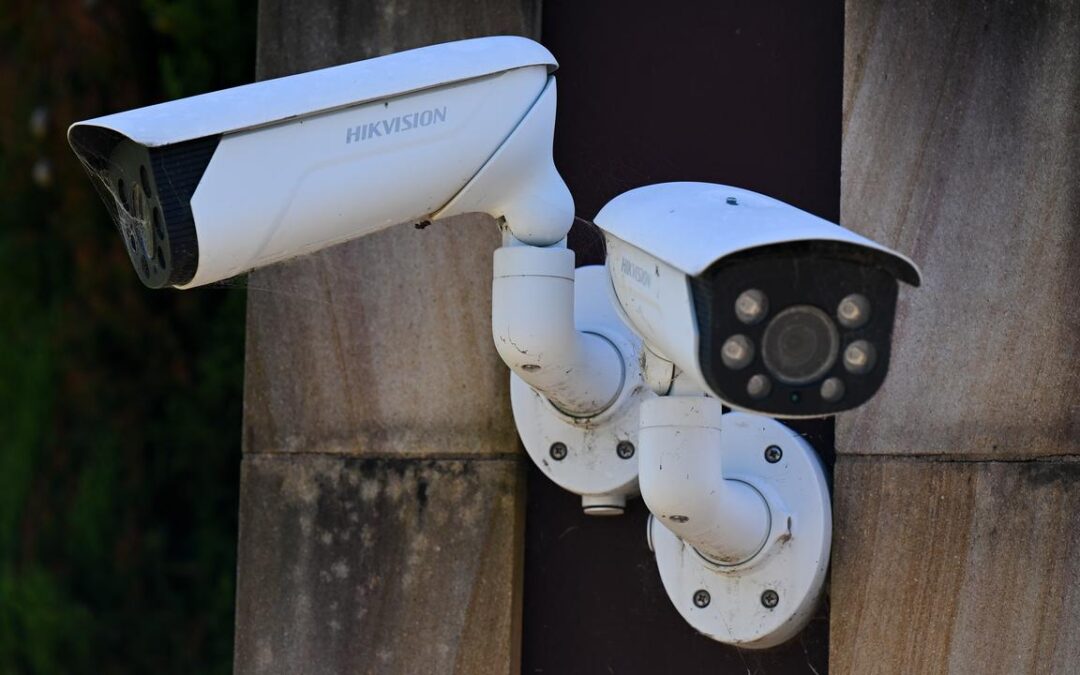
No ‘idle threat’: childcare on notice as reforms agreed
Shoddy childcare centres have been put on a short leash as the roll out of security cameras and a national workers register are green lit.
The measures were among a series of childcare and early education safety reforms agreed to on Friday at a crisis meeting of federal, state and territory education ministers.
Up to 300 small and medium operators will be part of the CCTV trial from October or November as part of a $189 million federal government funding package.
Work will begin immediately on the national register of all childcare workers, with the list expected to be soft-launched in December ahead of a full rollout from February.
Other agreed reforms include banning mobile phones in centres from September, mandatory national child safety training for all workers to detect and report suspected grooming and abuse and an extra 1600 spot visits.
The Australian Children’s Education and Care Quality Authority will report back on staff ratios by the end of 2025 after calls to introduce the “four eyes” principle.
The meeting of education ministers came after Melbourne childcare worker Joshua Dale Brown was charged with sexually abusing eight children under the age of two.
Brown was known to have worked at 24 facilities between 2017 and 2025.

Governments across the country must step up to restore mums and dads’ confidence in the system, Federal Education Minister Jason Clare said.
“This is not the end – it is the next thing we need to do,” he told reporters after the ministers’ meeting in Sydney.
“The awful truth is this work will never end because there will always be bad people who try to poke holes in the system and find vulnerabilities.”
Brown’s former employers, G8 Education and Affinity Education, pledged to install CCTV in hundreds of their for-profit centres after the allegations emerged in early-July.
The NSW government had already announced a trial of CCTV in at-risk facilities, although service leaders, staff, unions and parent groups raised “strong concerns” about the practice during a Victorian review.
It is legal to install CCTV in centres, apart from inside change areas and toilets.

Mr Clare said the protection and storage of CCTV footage would be a focus of the upcoming trial to ensure it doesn’t become a “honey pot” for hackers, along with camera placement.
“The police tell us that this can be an important aspect in deterring bad behaviour,” he said.
The federal government has initiated compliance actions against 37 early childhood centres under laws passed by federal parliament in July.
Mr Clare issued a stern warning to the named and shamed centres, which have six months to clean up their act after failing to meet standards for seven years.
“I am serious about this, it is not an idle threat: meet the standard or risk being shut down,” he said.

Child protection, early learning and union groups hailed the latest reforms as a step forward.
“These are practical measures that will close loopholes, improve accountability, and give families greater visibility and confidence,” Australian Childcare Alliance president Paul Mondo said.
The Front Project agreed they would restore confidence once implemented but cautioned children, families and educators remained vulnerable to falling through the cracks of the cross-jurisdictional system.
“Today marks a line in the sand,” chief executive Caroline Croser-Barlow said.
The United Workers Union said it was worried about the CCTV rollout coming at the expense of “sensible staffing decisions”, while the Independent Education Union said it was no substitute for a strong child safety culture.
Working-with-children check changes, agreed to by attorneys-general on August 15, will mean anyone prevented from holding a check in one state or territory will be automatically banned across the nation.
The federal opposition supports the urgent reforms but lamented governments failing to implement changes that were canvassed during the royal commission into institutional child sexual abuse which ended in 2017.
“Another day wasted is another day we cannot afford,” opposition education and early learning spokesman Jonno Duniam said.
1800 RESPECT (1800 737 732)
National Sexual Abuse and Redress Support Service 1800 211 028
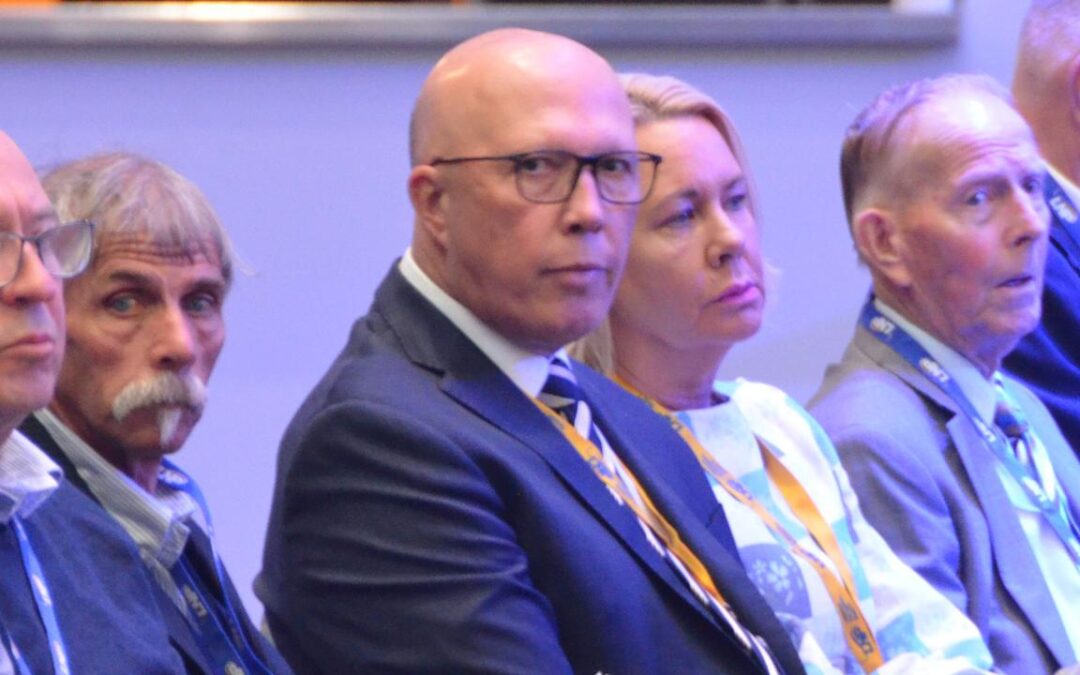
‘What would Peter do?’: Dutton feted at LNP convention
Peter Dutton has been hailed as a “great son” of the Liberal National Party after making a surprise appearance at its annual convention.
The former opposition leader received a standing ovation at an LNP gathering in Brisbane on Friday after being saluted by his successor Sussan Ley and outgoing president Lawrence Springborg.
He has been rarely sighted since a devastating federal campaign, when the coalition lost the election and he was dumped from his seat of Dickson in Brisbane.
But he enjoyed the spotlight on Friday, as Mr Springborg called him a “great son of the party”.

“Appreciate your service, Peter. Appreciate all that you have done for our party,” Mr Springborg, the architect behind the LNP merger in Queensland in 2008, told the convention.
Mr Springborg said Mr Dutton would have been prime minister if the party’s Queensland May 2025 federal poll success was repeated nationwide.
The coalition holds 16 of 30 seats in Queensland after winning more than 50 per cent of the two-party preferred vote at the federal election.
“If the other states and territories were able to achieve what we achieved in Queensland at the last federal election … we would be holding government in Australia now with a four-seat majority, with Peter Dutton … being our prime minister,” Mr Springborg said.
Ms Ley also hailed her predecessor, prompting another standing ovation.
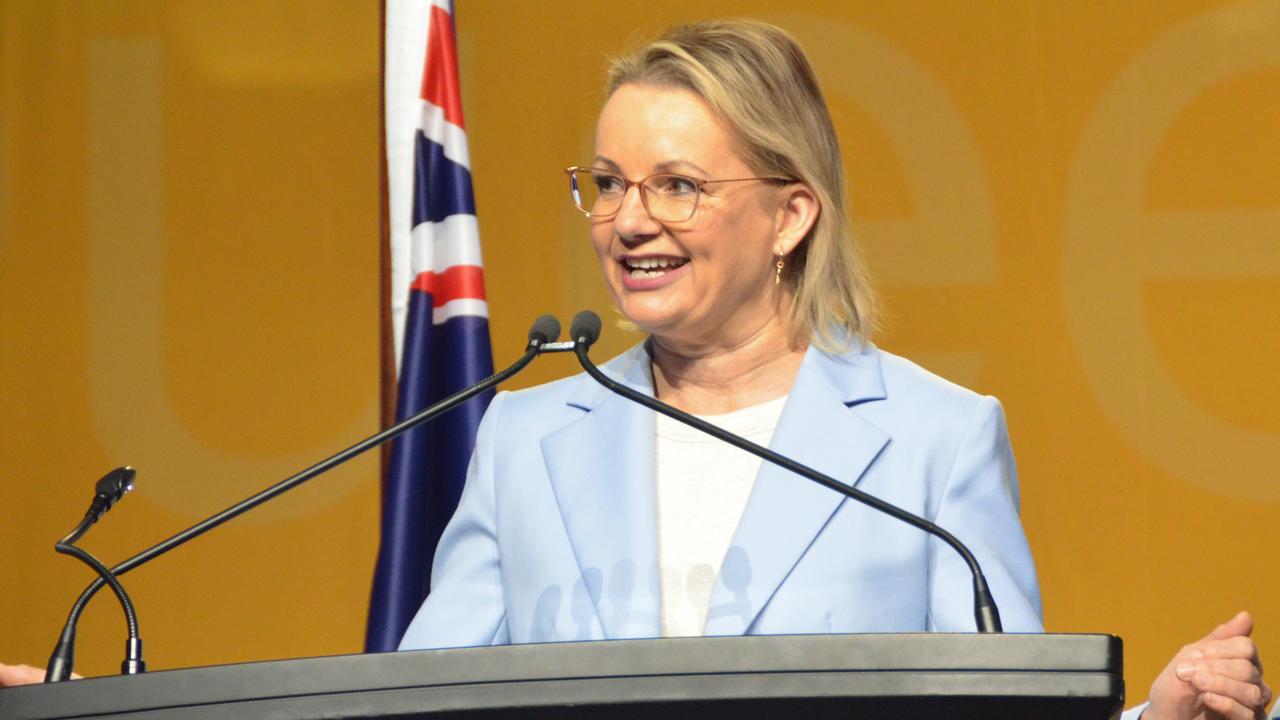
“Your record is one of courage, commitment and conviction. I’m proud to have been your deputy for three years,” she told the conference.
“I think about Peter often as I walk the corridors of Parliament House. What would Peter say? What would you do?”
In her speech to the party faithful, Ms Ley said they must face the reality of the federal election after Labor pulled off its biggest victory since 1943.
Plans to modernise and broaden the LNP’s appeal were paramount, she said.
“When we next face the voters, we will say ‘judge us by our plans and our actions’,” Ms Ley said.
“If we do our job well, I am confident Australians will once again place their trust in us.
“Our task is to take the lessons of defeat and turn them into the foundations of renewal.”
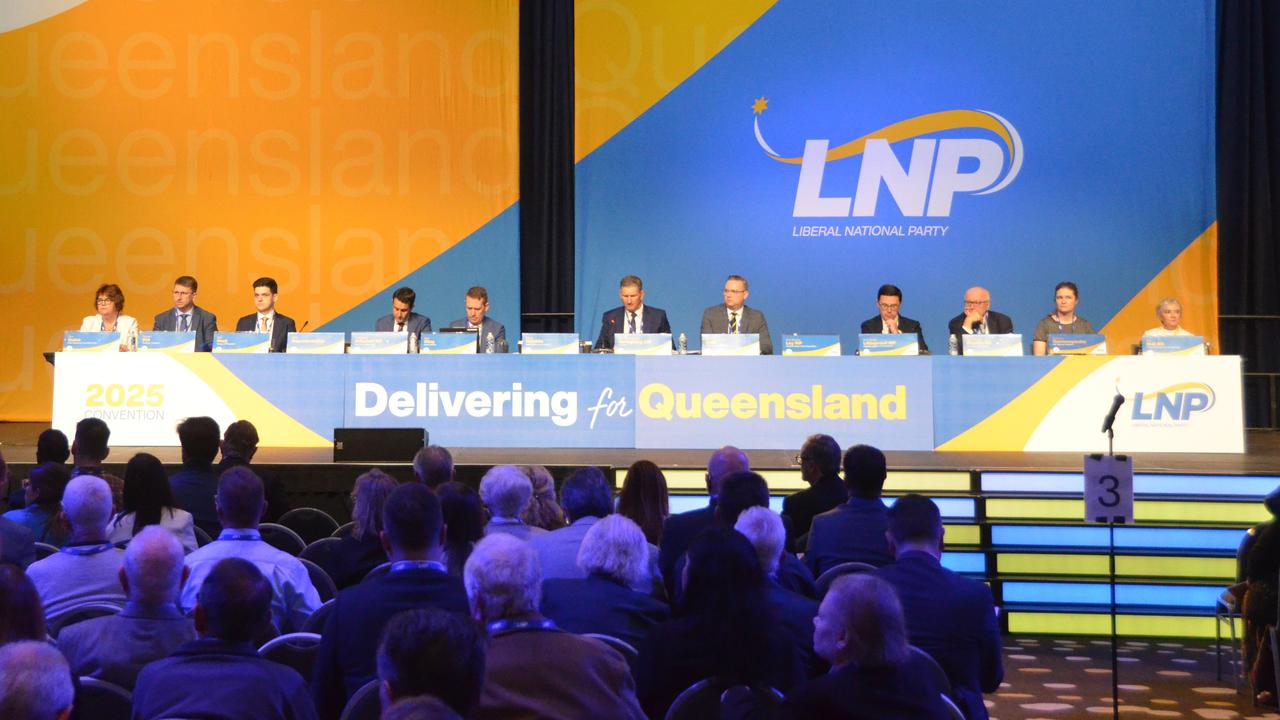
Mr Springborg has announced he will step down as party president, a position he has held since 2021.
But his impact has spanned decades, highlighted by his instrumental role in merging the parties and creating the LNP 17 years ago.
“He has helped formulate a merged identity that nobody else was able to pull off,” QUT Adjunct Associate Professor John Mickel said of Mr Springborg.
“Some 17 years on, (the LNP) has not only endured, but it has prospered.”
The LNP has savoured local, state and federal success.
It has dominated Australia’s biggest council – Brisbane City – for 20 years, while David Crisafulli ended Labor’s nine-year reign at the 2024 state election.
The LNP maintained a lower-house majority in Queensland at the federal election despite Labor’s crushing win.
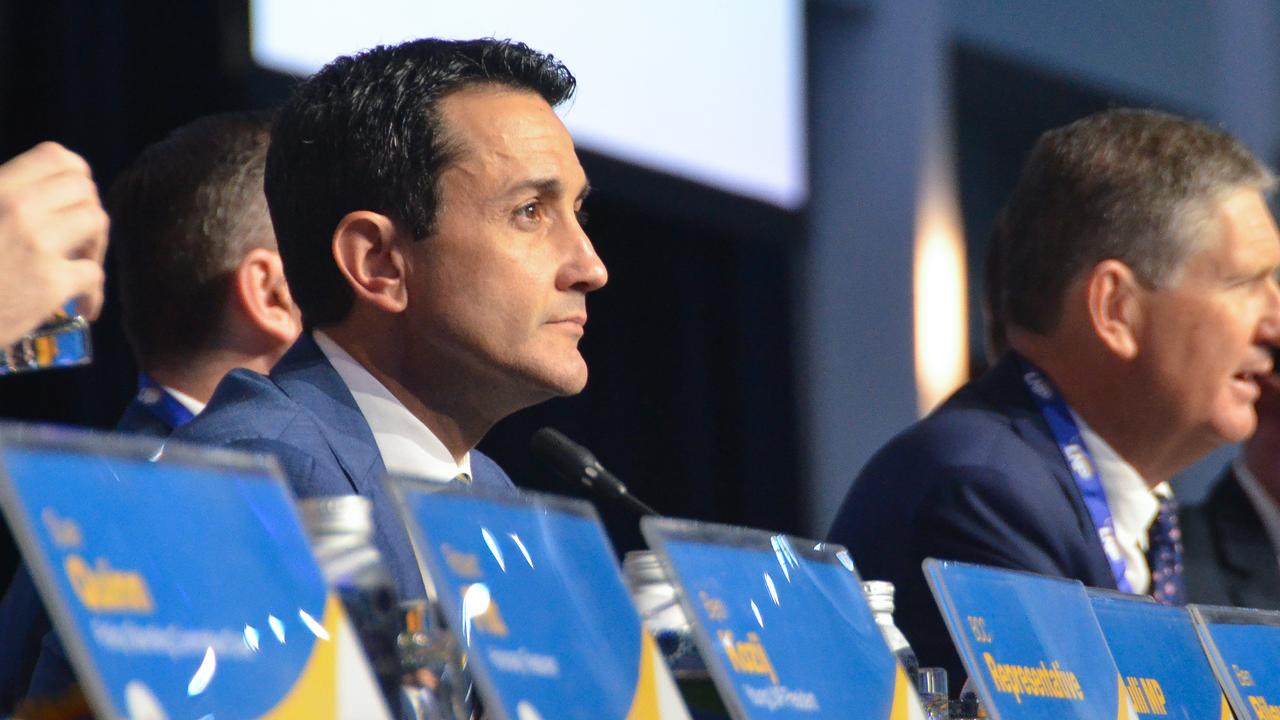
Mr Springborg remains the youngest person elected to Queensland parliament after winning the seat of Carnarvon in 1989 aged 21.
He led the National Party in the early 2000s before heading the first merged LNP in 2008-2009 and 2015-2016.
Mr Springborg will remain mayor of Queensland border town Goondiwindi.
The three-day LNP conference continues on Saturday with Nationals leader David Littleproud taking centre stage, with Mr Crisafulli to appear on Sunday.
The party will debate 163 resolutions in open sessions over the convention’s three days, with topics including abandoning net zero, phasing out pokies and an anti-Semitism summit.
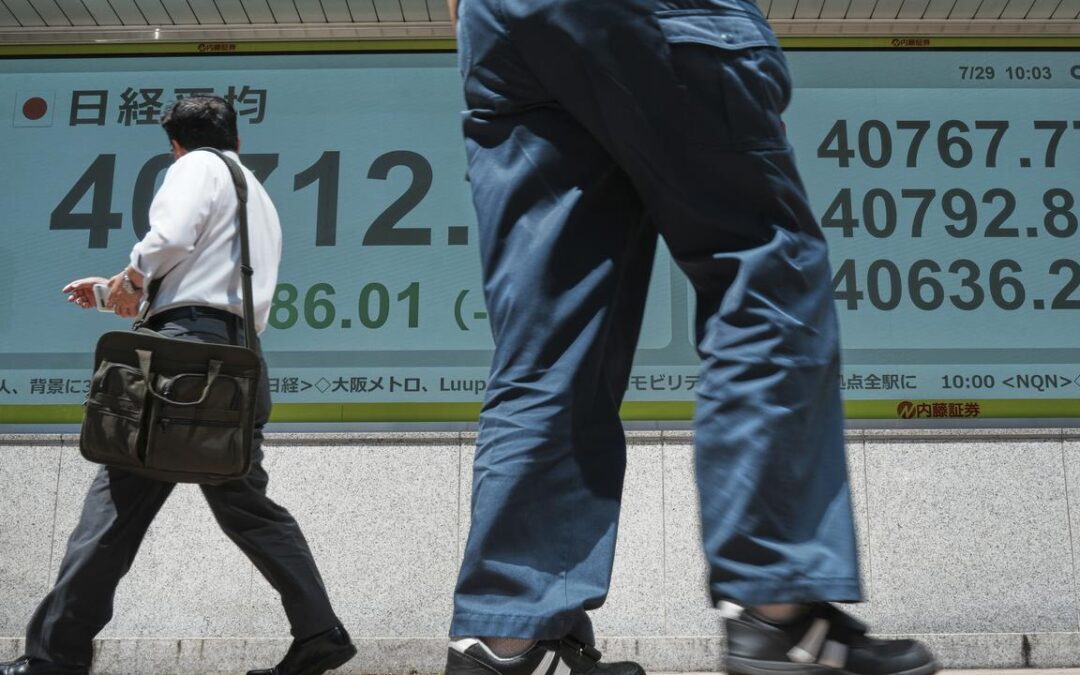
Asia shares choppy as traders await Powell speech
Stocks in Asia edged higher in a shaky start on Friday as anxious traders awaited a speech from Federal Reserve Chair Jerome Powell at the annual Jackson Hole symposium.
Financial markets are looking out for Powell to provide clues about the likelihood of a September rate cut in the wake of recent signs of job market weakness and the near term outlook for policy.
“Markets are on edge ahead of the all-important Jackson Hole speech,” said Carol Kong, an economist and currency strategist at Commonwealth Bank of Australia in Sydney.
S&P 500 futures added 0.1 per cent after a five-day losing streak on Wall Street, which left the cash gauge of US equities on track for its biggest one-week decline this month.
It was a different story in the region, with MSCI’s broadest index of Asia-Pacific shares outside Japan up 0.1 per cent, extending gains to 1.5 per cent so far this month. South Korea’s Kospi index led the charge, rising 1.1 per cent.
The Nikkei 225 veered between gains and losses, and was last trading flat.
The yen held steady at 148.45 against the US dollar after data showed Japan’s core consumer prices in July exceeded analysts’ estimates and the Bank of Japan’s inflation target.
The US dollar index, which tracks the greenback against a basket of currencies of major trading partners, was steady at 98.60 after four consecutive days of gains, as traders parsed speeches from Fed officials who appeared lukewarm to the idea of an interest rate cut next month.
Traders had ramped up bets for a September cut following a surprisingly weak payrolls report at the start of this month, and after consumer price data showed limited upward pressure from tariffs.
However, market pricing pulled back slightly following the release of minutes from the Fed’s July meeting. Traders are now pricing in a 75 per cent probability of a cut in September, down from 82.4 per cent on Thursday, according to the CME Group’s FedWatch tool.
The most likely scenario is that Powell won’t provide “any definitive clues” on what the Fed will do next ahead of critical non-farm payrolls and CPI data, Kong said.
“Given where the current market is, the risk is a stronger US dollar, especially if he challenges the current market pricing of a 25-basis-point cut.”
Traders are assessing signs that US economic activity picked up pace in August, with PMI data from S&P Global showing the strongest growth in manufacturing orders in 18 months.
But the labour market also highlighted pockets of weakness, as the number of Americans filing new applications for jobless benefits rose by the most in about three months last week and the number of people collecting unemployment relief in the prior week climbed to the highest level in nearly four years.
The euro added 0.1 per cent as the EU and the US set out details of a framework trade deal struck in July.
Oil prices edged lower, with Brent crude last trading at $US67.64 ($A105.28) per barrel, after strong gains on Thursday as Russia and Ukraine blamed each other for a stalled peace process, and US data showed signs of strong demand in the top oil consuming nation.
Gold was slightly lower, with spot bullion flat at $US3335.41 ($A5,191.62) per troy ounce.
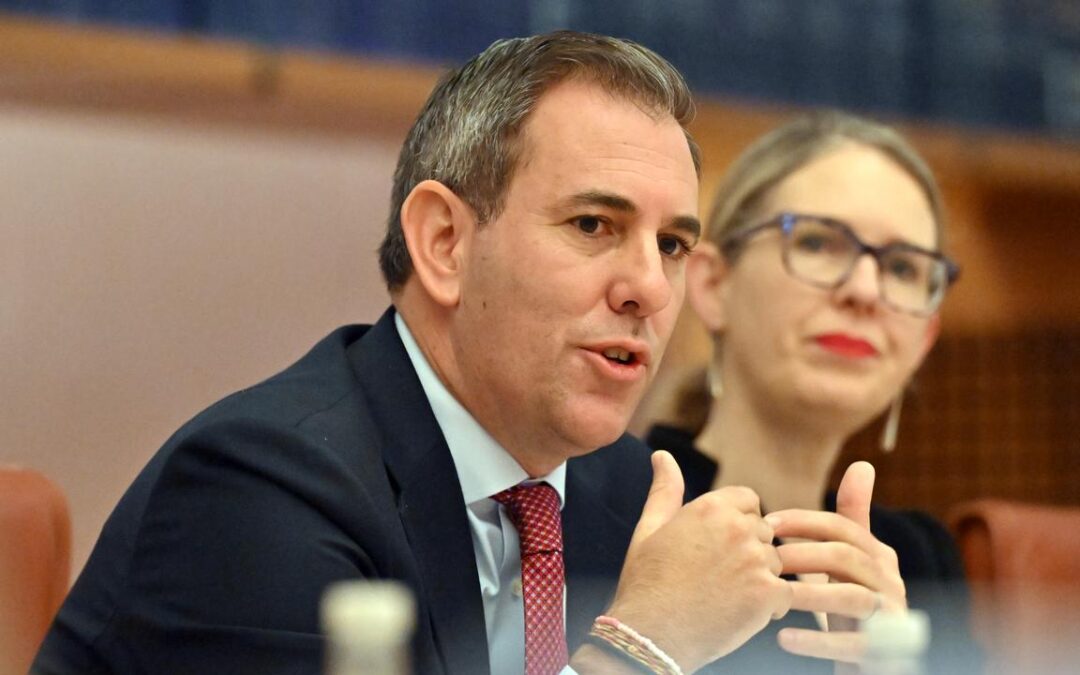
Treasurer mulls making tax fairer for young Australians
Intergenerational fairness will be central to any tax reform by the federal government, Jim Chalmers says as he opens the door to increased taxes on superannuation, trusts and capital gains.
The treasurer has not ruled in, or ruled out, a rewrite of the tax system, despite a three-day roundtable in Parliament House agreeing that it was deeply unfair to younger Australians.
Wrapping up the summit, Dr Chalmers conceded the tax system was “imperfect”, especially when “seen through an intergenerational lens”.
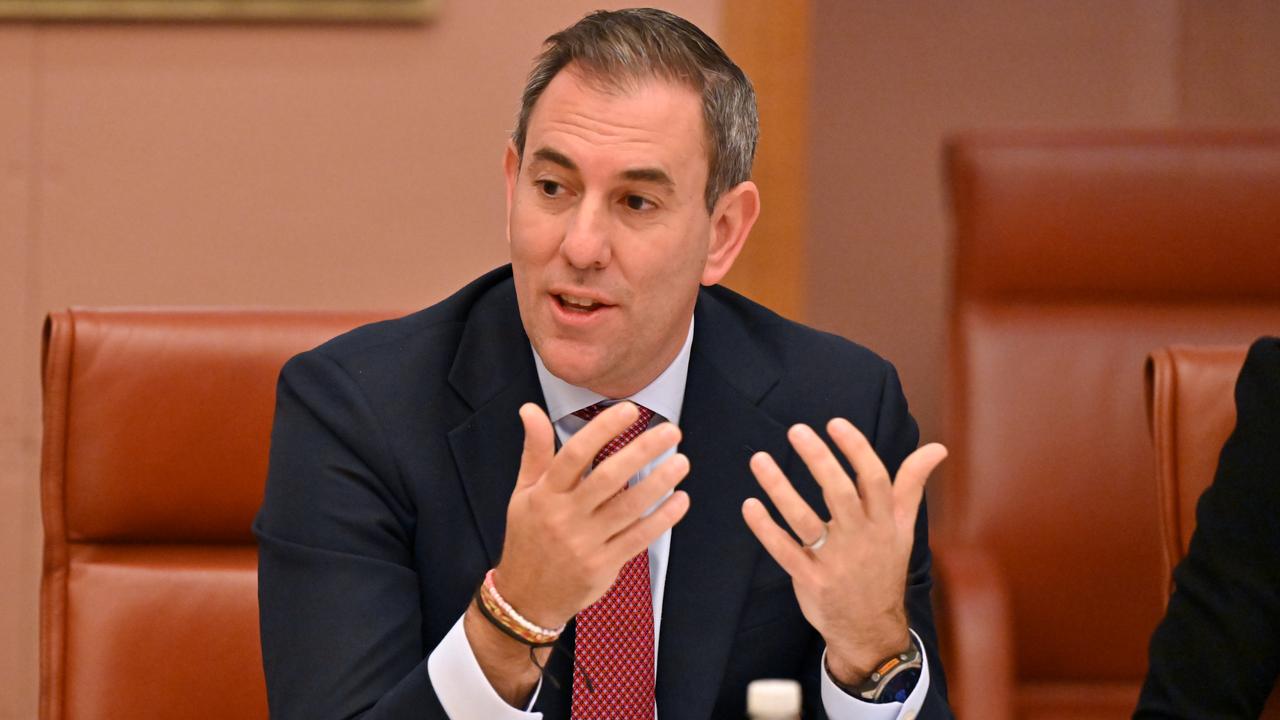
“One of the defining outcomes of this economic reform roundtable was building consensus and momentum around ensuring that intergenerational fairness is one of the defining principles of our country, but also of our government,” he told ABC radio on Friday.
“And that’s certainly something that we will pick up and run with.”
Tax experts, including some who attended the roundtable, say Australia relies too heavily on taxes on wages and salaries while under-taxing passive income derived from savings and other wealth.
Grattan Institute chief executive Aruna Sathanapally said the burden on younger working Australians was growing “automatically” due to bracket creep.
“If we don’t do something else to raise revenue, we’ll just end up relying more and more on wages and salaries,” she told ABC Radio National.
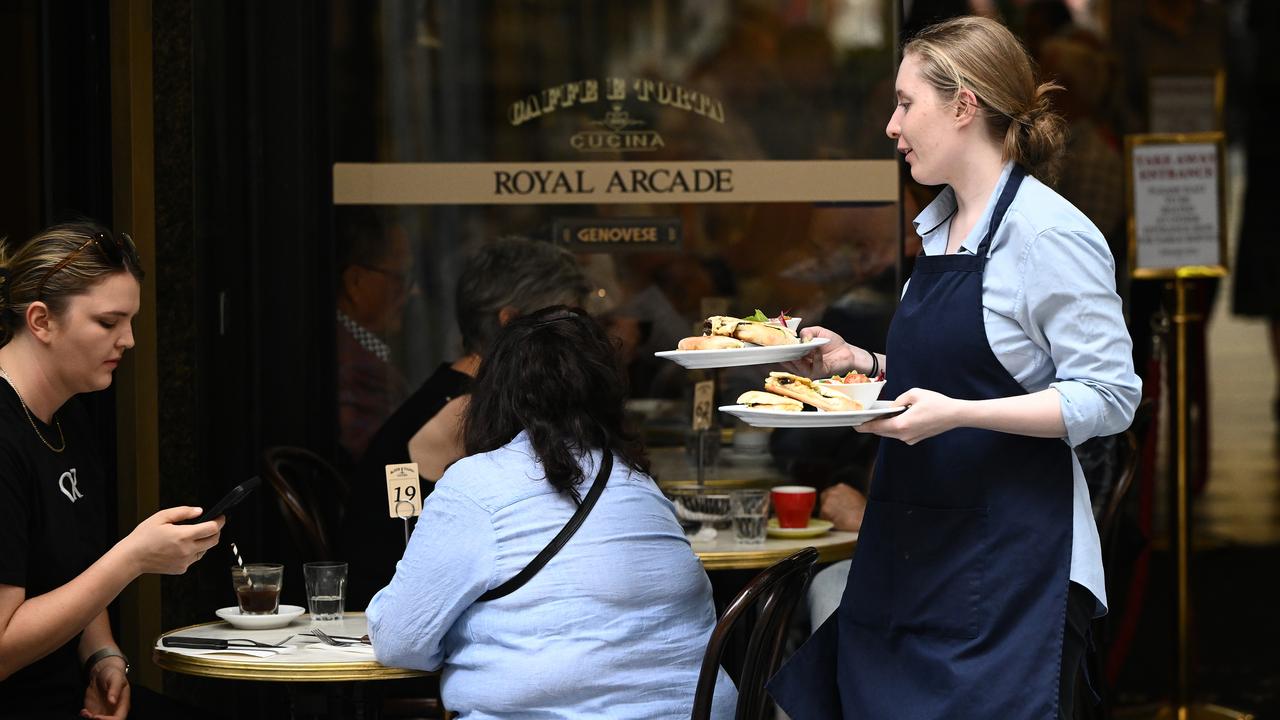
“It’s not clear that the amount of concessions that we give to savings is at all necessary for people to save, and it’s not clear that it’s particularly fair.
“In fact, I’d say it’s particularly unfair when you look at the position that retiree households now find themselves, where they can earn the same income as a working household and pay potentially less than half the tax.”
Former Treasury secretary Ken Henry, who also spoke at the roundtable, has described the growing burden on workers as a “wilful act of bastardry”.
Independent MP Allegra Spender said retiree wealth was surging, while young people are flatlining.
“For the last three years I have been pushing the parliament to put tax reform on the agenda, to help young Australians achieve the same milestones as their parents, and drive productivity and investment in our businesses,” she said.
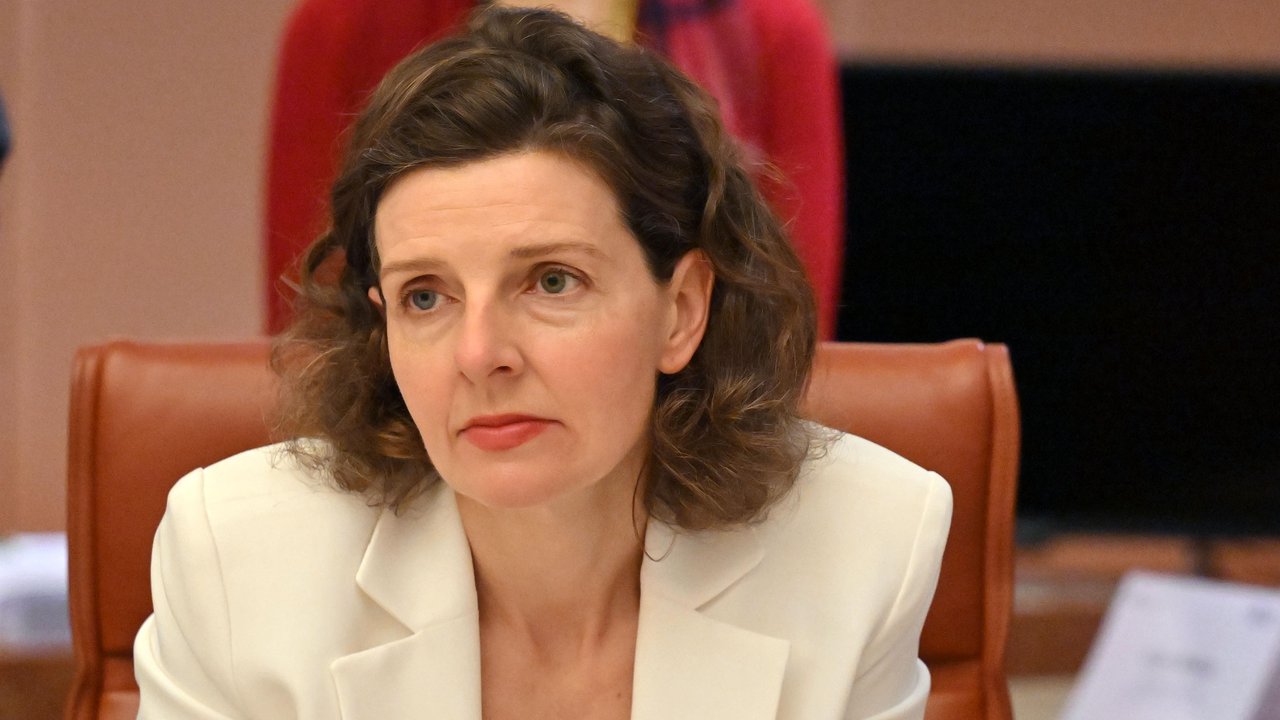
“The treasurer announced that the government will start to work to these objectives, and I am delighted.”
But the coalition is wary of any tax changes under a Labor government.
“If they go ahead and try and increase taxes, that’ll be a major breach of faith with the Australian people,” opposition finance spokesman James Paterson said.
While tax reform faces further consultation, Dr Chalmers announced a number of ideas that could be delivered faster, such as a road user charge that ensures EV drivers contribute to road maintenance costs.
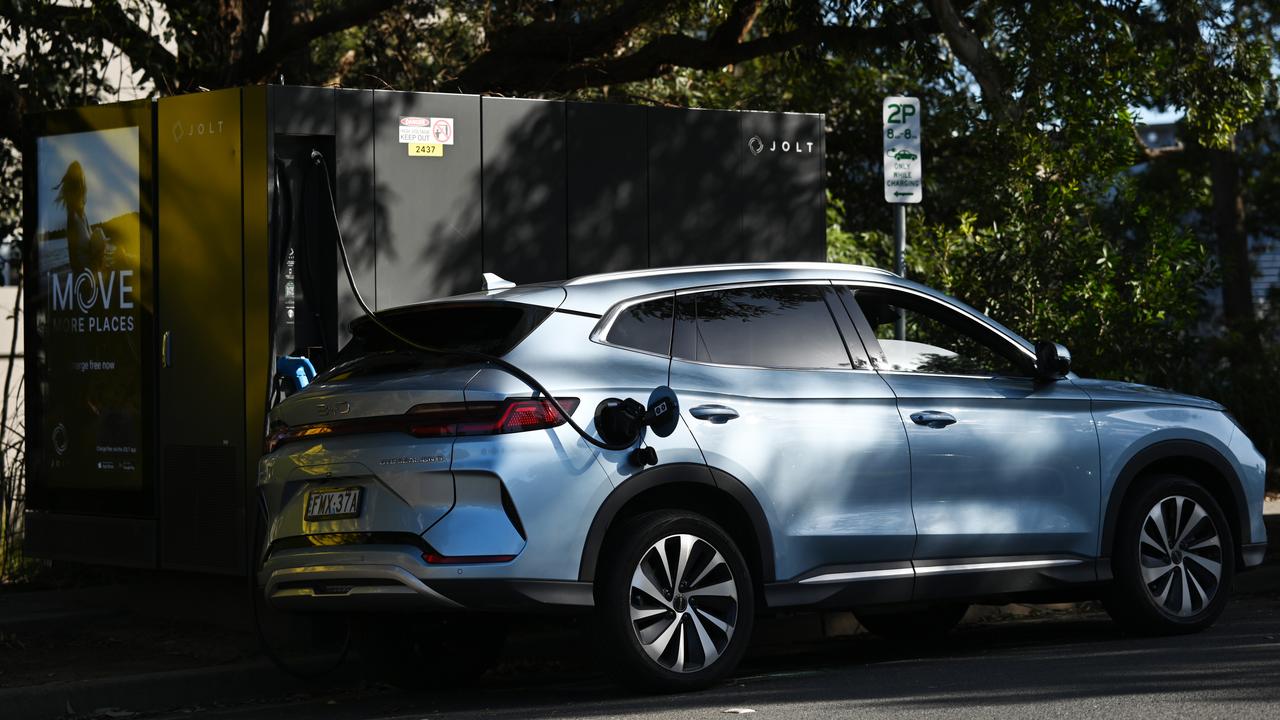
Senator Paterson was supportive of the proposal.
“Everybody agrees that it is not fair that some road users who fill up their car with petrol and diesel pay the costs of maintaining roads, and some road users who have an EV don’t contribute to that cost,” he told ABC radio.
Business groups welcomed promises to speed up building approvals, remove nuisance tariffs and red tape, and fast-track an overhaul of environmental laws.
Business Council of Australia chief executive Bran Black said the government needed to act on the goodwill from the roundtable and make the reforms come into effect.
“It sets us a bit of a course for how we can go about progressing real action over the course of the next months and years ahead. It’s time for the rubber to hit the road,” he said in Canberra.
Dr Chalmers flagged further talks to flesh out the specifics of a road user charge model when state and territory treasurers meet in September.
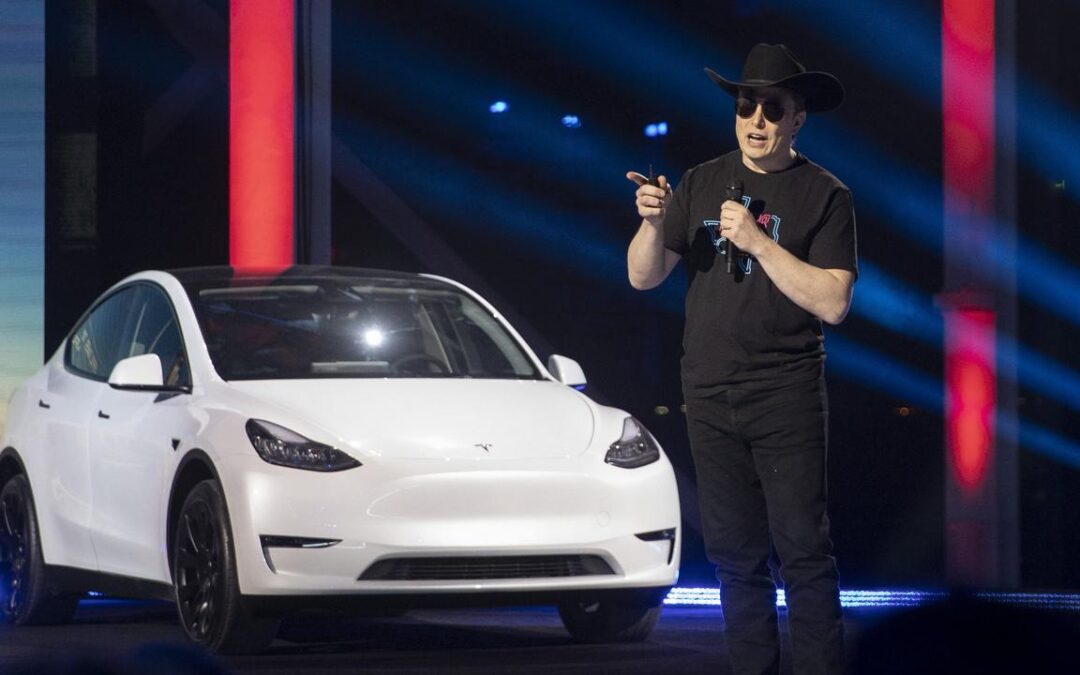
Tesla slow in reporting self-driving tech crashes
US federal auto safety regulators are investigating why Tesla has repeatedly broken rules requiring it to quickly tell them about crashes involving its self-driving technology.
It’s potentially significant development given the company’s plans to put hundreds of thousands of driverless cars on US roads over the next year.
The National Highway Traffic Safety Administration said on Thursday that Tesla’s reports on numerous incidents involving its driver assistance and self-driving features were submitted far too late — several months after the crashes, instead of within five days as required.
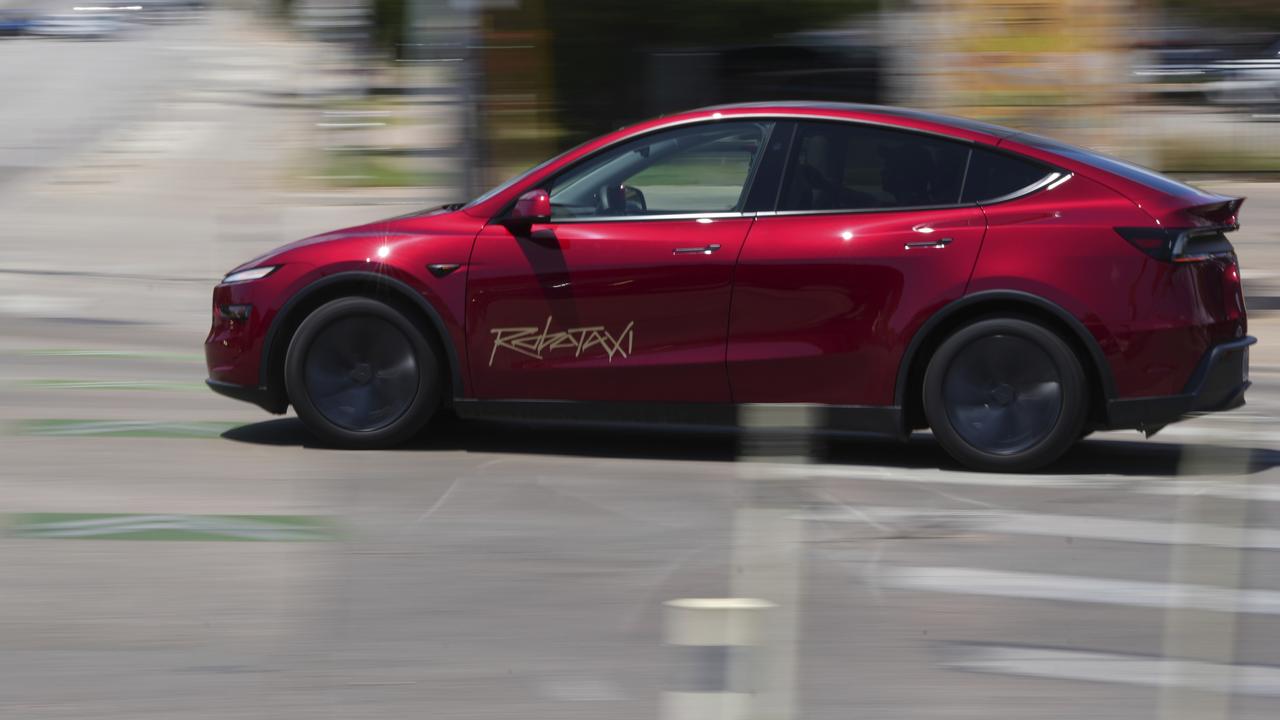
The probe comes two months after the electric vehicle maker run by Elon Musk started a self-driving taxi service in Austin, Texas, with hopes of soon offering it nationwide.
The company also hopes to send over-the-air software updates to millions of Teslas already on the road that will allow them to drive themselves.
Investors enthusiastic about such plans have kept Tesla stock aloft despite plunging sales and profits due to boycotts over Musk’s support for US President Donald Trump and far-right politicians in Europe.
The safety agency said the probe will focus on why Tesla took so long to report the crashes, whether the reports included all the necessary data and details and if there are crashes that the agency still doesn’t know about.
Tesla did not respond to a request for comment, but the agency noted that the company has told it the delays were “due to an issue with Tesla’s data collection,” which Tesla says has now been fixed.
The new investigation follows another probe that began in October into potential problems with Tesla’s self-driving technology in foggy weather and other low-visibility conditions, which has been linked to several accidents including one death.
That probe involves 2.4 million Tesla vehicles.
The crash reporting rule for vehicles using level two driver-assistance software, or those that require drivers to pay full attention to the road, was implemented in 2021.
Since then, Tesla has reported 2308 crashes when the software was used, the vast majority of the more than 2600 reported by all automakers, according to agency data.
The numbers are skewed by the fact that Tesla is by far the dominant maker of partial self-driving vehicles in the US
The company has been offering robotaxi rides in Austin to only a select group of riders, but said it will allow any paying customer to hail its cabs starting sometime in September, according to a Musk post on X earlier this month.
Tesla has also begun allowing limited robotaxi service in San Francisco with a driver behind the wheel as a safety check to conform with California rules.
Investors in Tesla were initially cheered after Trump won the presidency in hopes he would reward his biggest financial backer, Musk, by getting safety regulators to go easier on the company.
Now that isn’t so certain given Musk’s falling out with the president in recent months after Musk called Trump’s budget bill an “abomination” that would add to US debt and threatened to form a new political party.
Tesla stock fell less than 1.0 per cent in afternoon trading on Thursday to $US321 ($A500).
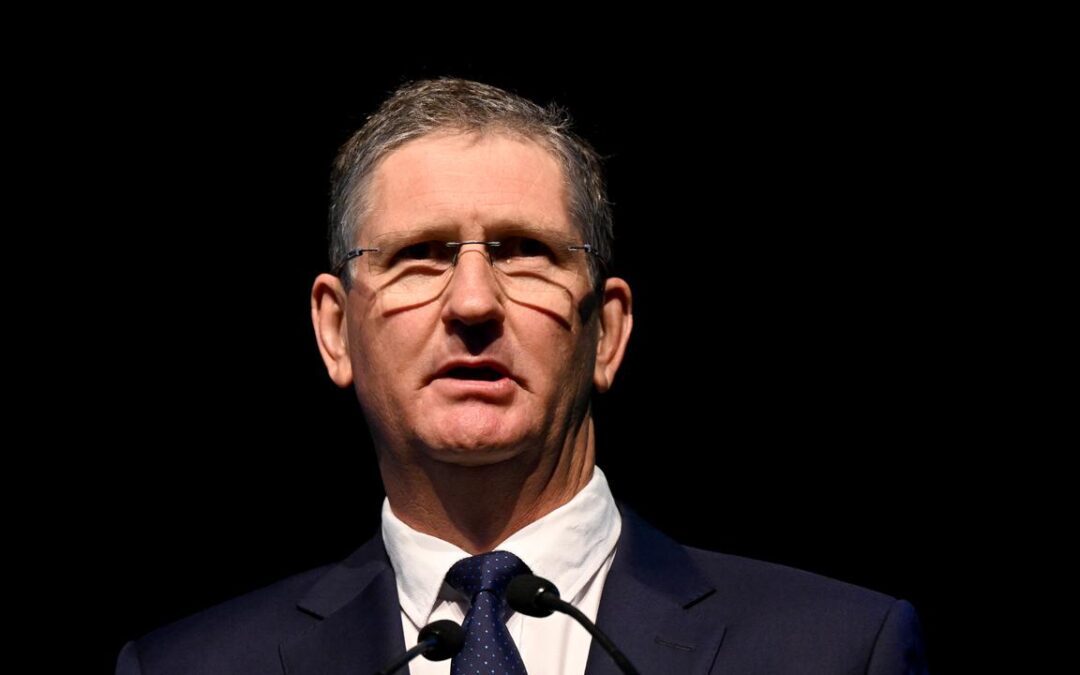
LNP convention to farewell party architect, president
The architect behind the Liberal National Party is set to walk away.
The curtain will be drawn on Lawrence Springborg’s stint as party president at the three-day LNP convention starting in Brisbane on Friday.
While Mr Springborg will step down as president, federal opposition leader Sussan Ley is set to step up.
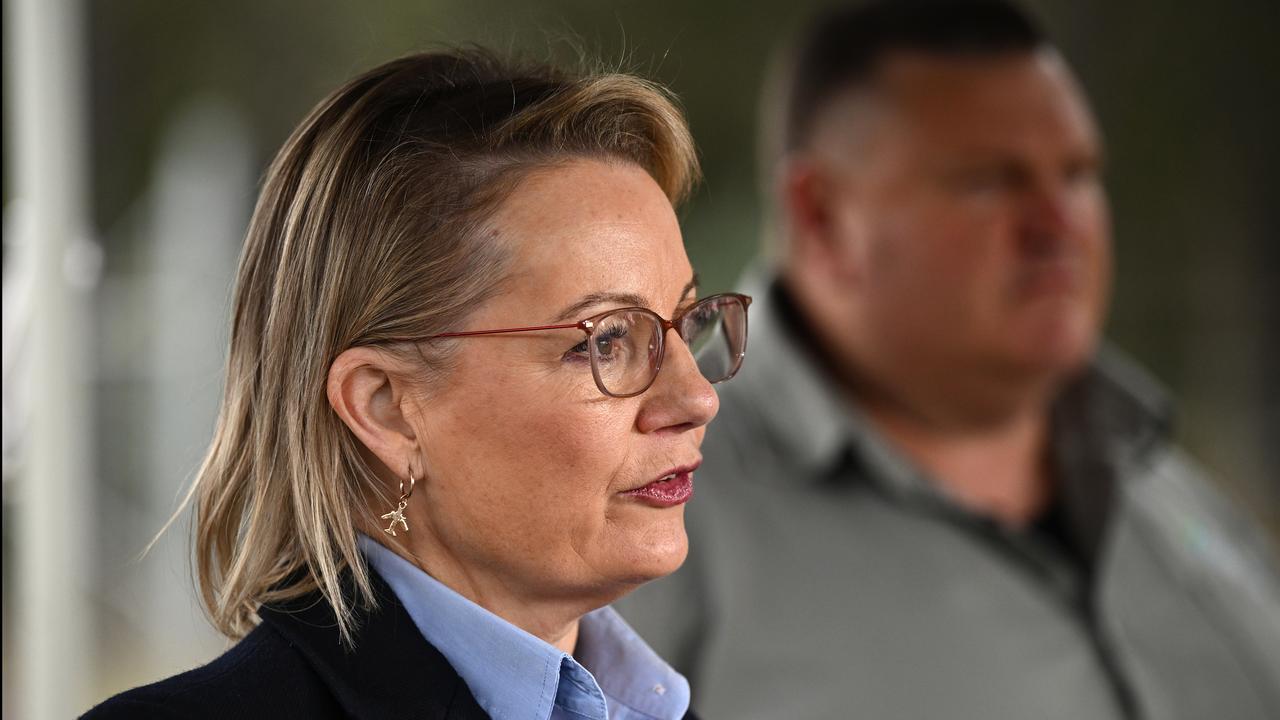
Ms Ley will take centre stage when she addresses the convention on Friday after calling for colleagues to win back the trust of Australian women.
Mr Springborg’s legacy will loom large at the convention, where more than 150 resolutions are set to be debated.
He has been party president since 2021.
But his impact has spanned decades, highlighted by his instrumental role in merging the parties and creating the LNP in 2008.
Mr Springborg will walk away having achieved something unprecedented, QUT Adjunct Associate Professor John Mickel said.
“Some 17 years on (LNP) has not only endured but it has prospered,” Prof Mickel told AAP.
“He has helped formulate a merged identity that nobody else was able to pull off.”
The Queensland-based LNP has savoured local, state and federal success since its inception.
It has dominated Australia’s biggest council – Brisbane City – for 20 years, while David Crisafulli ended Labor’s nine-year reign at the 2024 state election.
The LNP also maintained a lower-house majority in Queensland at the most recent federal election despite Labor pulling off its biggest victory since 1943.
Mr Springborg remains the youngest person elected to Queensland parliament after winning the seat of Carnarvon in 1989 aged 21.
He led the National Party in the early 2000s before heading the first merged LNP in 2008-2009 and 2015-2016.
Mr Springborg had earlier confirmed he would not contest the LNP presidency but will remain mayor of Queensland border town Goondiwindi.
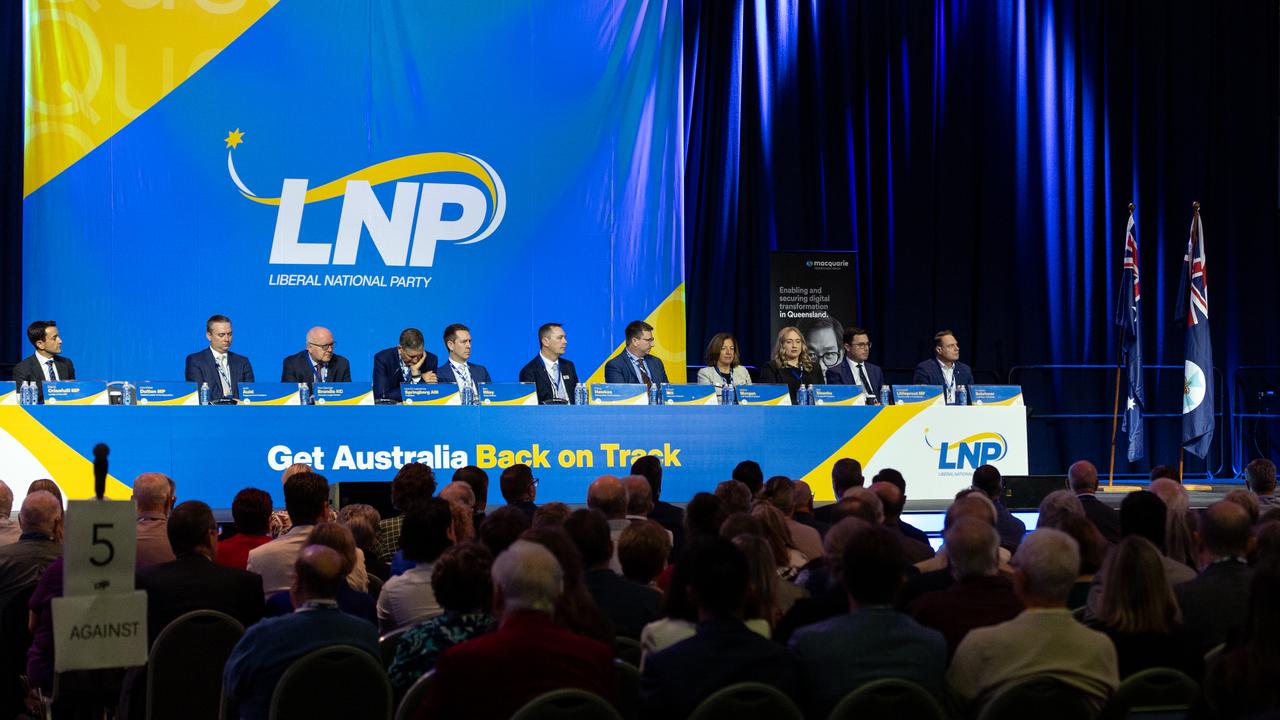
As Mr Springborg contemplates a new chapter, Ms Ley has urged colleagues to do the same ahead of Friday’s address.
The opposition leader told the LNP women’s conference on Thursday if they want to win the next federal election they must win back the trust of Australian women.
She said the coalition would be stronger with women at the heart of its decisions and direction, calling for females to be pre-selected in winnable seats by the 2028 election.
She asked members to be bold and lead the national conversation on women’s economic participation, safety and leadership.
The list of 163 resolutions set to be discussed in open sessions over the three days include abandoning net zero, phasing out pokies and an anti-Semitism summit.
Nationals leader David Littleproud will address the conference on Saturday and Mr Crisafulli on Sunday.
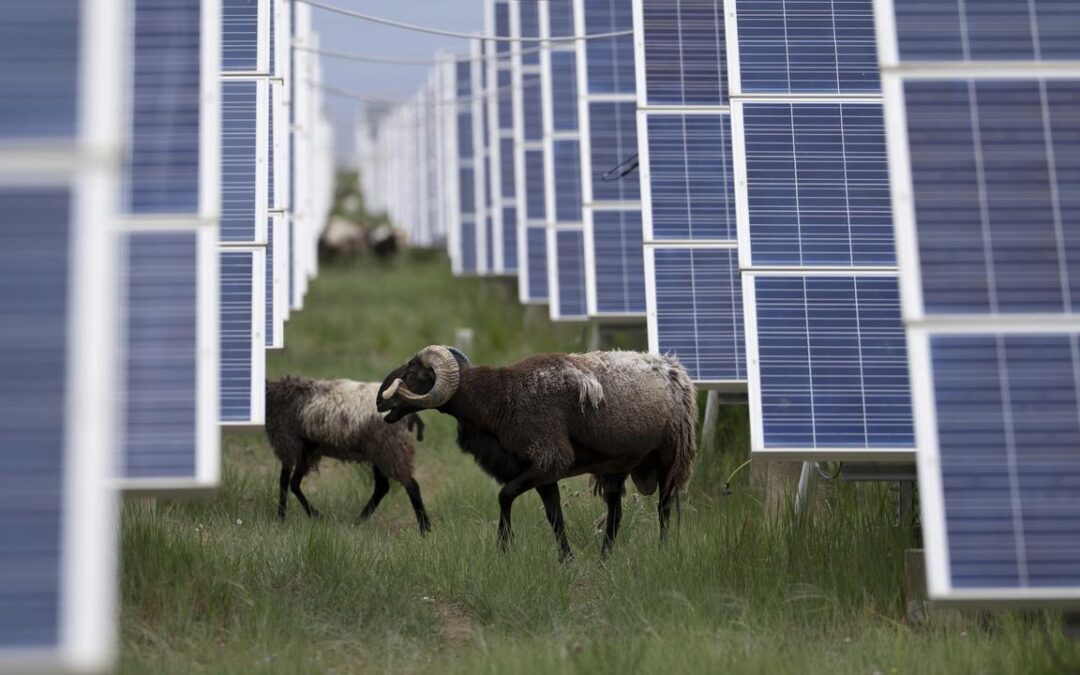
China races to build world’s largest solar farm
Chinese government officials have shown off what they say will be the world’s largest solar farm.
It’s on a Tibetan plateau and covers 610 square kilometres, which is the size of Chicago.
China has been installing solar panels far faster than anywhere else in the world, and the investment is starting to pay off.
A study released Thursday found that the country’s carbon emissions edged down one per cent in the first six months of 2025 compared to a year earlier, extending a trend that began in March 2024.
The good news is China’s carbon emissions may have peaked well ahead of a government target of doing so before 2030.
But China, the world’s biggest emitter of greenhouse gases, will need to bring them down much more sharply to play its part in slowing global climate change.
For China to reach its declared goal of carbon neutrality by 2060, emissions would need to fall three per cent on average over the next 35 years, said Lauri Myllyvirta, the Finland-based author of the study and lead analyst at the Centre for Research on Energy and Clean Air.
“China needs to get to that three per cent territory as soon as possible,” he said.
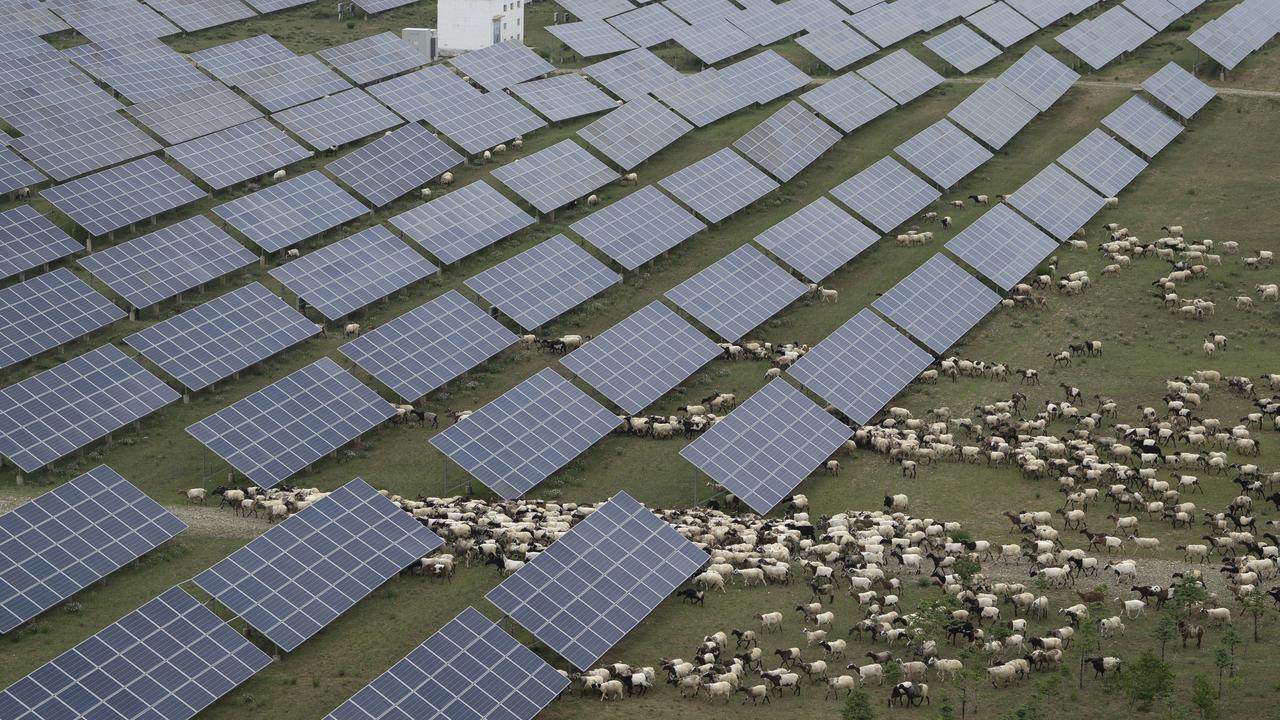
China’s emissions have fallen before during economic slowdowns.
What’s different this time is electricity demand is growing — up 3.7 per cent in the first half of this year — but the increase in power from solar, wind and nuclear has easily outpaced that, according to Myllyvirta, who analyses the most recent data in a study published on the UK-based Carbon Brief website.
“We’re talking really for the first time about a structural declining trend in China’s emissions,” he said.
China installed 212 gigawatts of solar capacity in the first six months of the year, more than America’s entire capacity of 178 gigawatts as of the end of 2024, the study said.
Electricity from solar has overtaken hydropower in China and is poised to surpass wind this year to become the country’s largest source of clean energy.
Some 51 gigawatts of wind power were added from January to June.
Li Shuo, the director of the China Climate Hub at the Asia Society Policy Institute in Washington, described the plateauing of China’s carbon emissions as a turning point in the effort to combat climate change.
“This is a moment of global significance, offering a rare glimmer of hope in an otherwise bleak climate landscape,” he wrote in an email response. It also shows that a country can cut emissions while still growing economically, he said.
But Li cautioned that China’s heavy reliance on coal remains a serious threat to progress on climate and said the economy needs to shift to less resource-intensive sectors. “There’s still a long road ahead,” he said.
A seemingly endless expanse of solar panels stretches toward the horizon on the Tibetan plateau.
White two-story buildings rise above them at regular intervals.
In an area that is largely desert, the massive solar project has wrought a surprising change on the landscape.
The panels act as windbreaks to reduce dust and sand and slow soil evaporation, giving vegetation a foothold.
Thousands of sheep, dubbed “photovoltaic sheep,” graze happily on the scrubby plants.
Wang Anwei, the energy administration chief of Hainan Prefecture, called it a “win-win” situation on multiple levels.
“In terms of production, enterprises generate electricity on the top level, and in terms of ecology, grass grows at the bottom under the solar panels, and villagers can herd sheep in between,” he said.
Solar panels have been installed on about two-thirds of the land, with power already flowing from completed phases.
When fully complete, the project will have more than seven million panels and be capable of generating enough power for five million households.
Like many of China’s solar and wind farms, it was built in the relatively sparsely populated west.
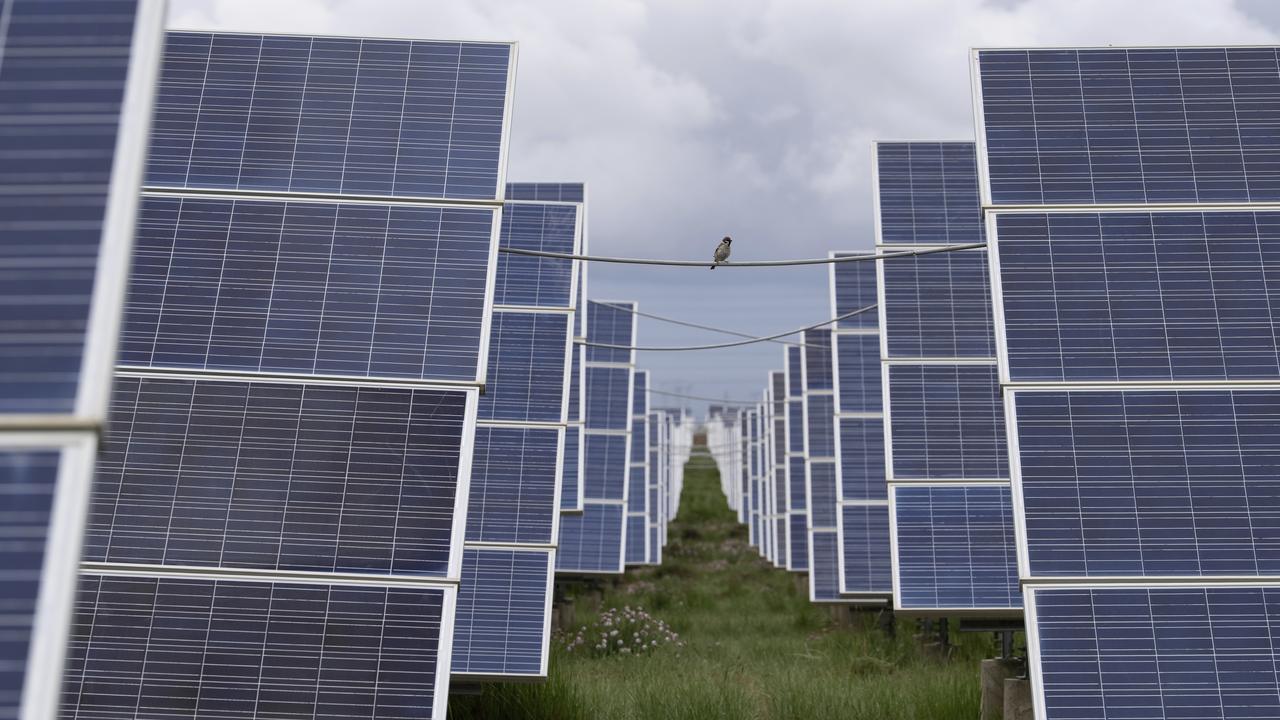
A major challenge is getting electricity to the population centres and factories in China’s east.
“The distribution of green energy resources is perfectly misaligned with the current industrial distribution of our country,” Zhang Jinming, the vice governor of Qinghai province, told journalists on a government-organised tour.
Part of the solution is building transmission lines traversing the country.
One connects Qinghai to Henan province.
Two more are planned, including one to Guangdong province in the southeast, almost at the opposite corner of the country.
Making full use of the power is hindered by the relatively inflexible way that China’s electricity grid is managed, tailored to the steady output of coal plants rather than more variable and less predictable wind and solar, Myllyvirta said.
“This is an issue that the policymakers have recognised and are trying to manage, but it does require big changes to the way coal-fired power plants operate and big changes to the way the transmission network operates,” he said.
“So it’s no small task.”
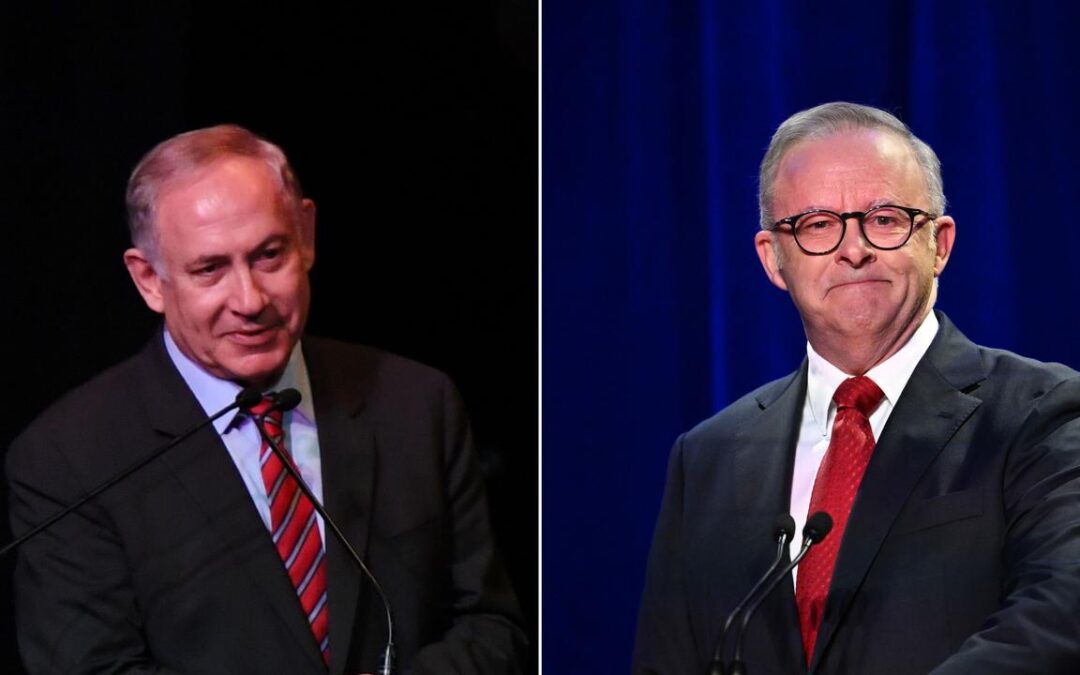
Tarnished: Netanyahu ups the ante on Albanese attack
The diplomatic stoush between Australia and Israel has cranked up another gear, with Prime Minister Benjamin Netanyahu using a television appearance to blast Anthony Albanese’s leadership record.
Mr Albanese has flagged that Australia will join other Western nations, including the UK, France and Canada, in recognising a state of Palestine at the United Nations General Assembly in September, in response to the worsening humanitarian crisis in Gaza.
A furious Mr Netanyahu unleashed on Mr Albanese during an interview on Australian television on Thursday night.
“I’m sure he has a reputable record as a public servant, but I think his record is forever tarnished by the weakness that he showed in the face of these Hamas terrorist monsters,” Mr Netanyahu told Sky News.
“When the worst terrorist organisation on earth… which murdered women, raped them, beheaded men and burnt babies alive in front of their parents and took hundreds of hostages, when these people congratulate the prime minister of Australia, you know something is wrong.”
Diplomatic ties hit an all-time low this week after the federal government denied a visa to far-right Israeli politician Simcha Rothman from entering the country for a speaking tour, following provocative comments.
Israel retaliated by cancelling the visas of three Australian diplomats who cover the Palestinian Authority.
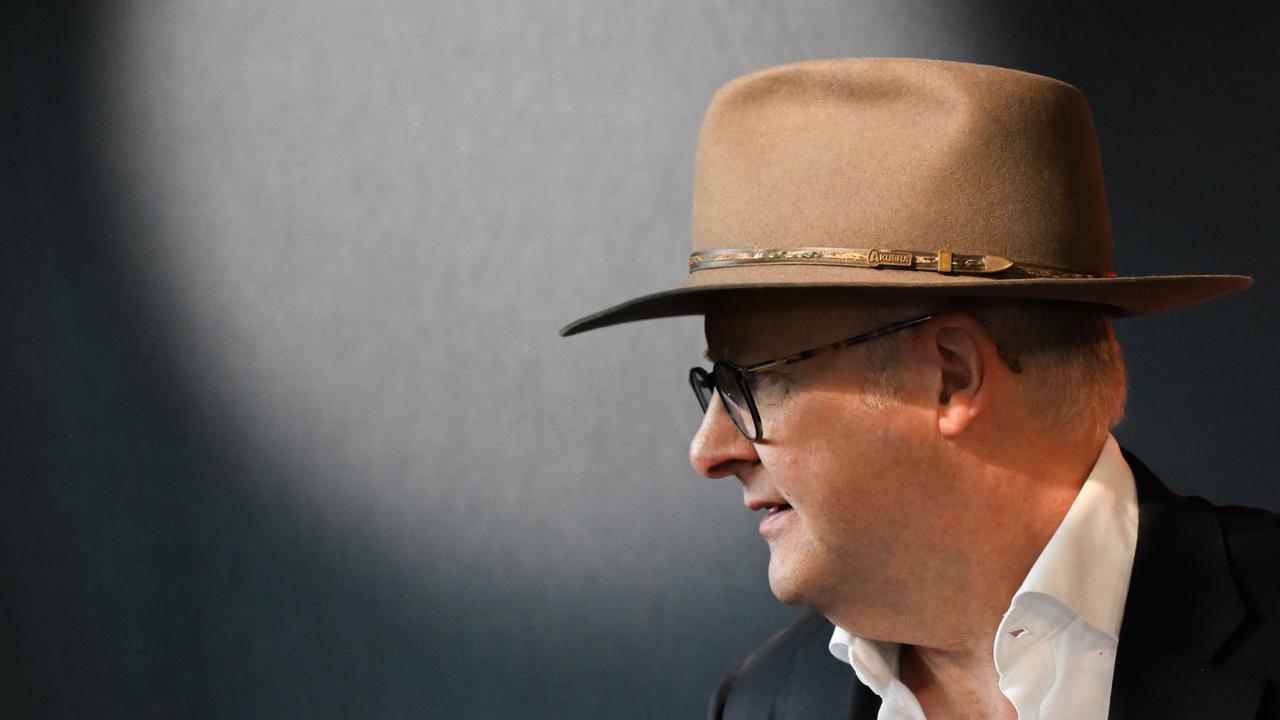
“When Prime Minister Albanese and the leaders of France and Britain and others, when they say we’ll give them a Palestinian state, they are actually rewarding terror, they are saying it doesn’t matter what horrors you people do,” Mr Netanyahu said.
“(Australia and Israel) had a great relationship over the years. I think it’s gone astray because leaders did not show the strength and conviction they should have, when we’re fighting the war of Western civilisation against these barbarians.”
Mr Netanyahu’s broadside came as the Israeli military maintains pressure on Gaza City with heavy bombardments ahead of an offensive to seize the enclave’s largest city.
The military has called up 60,000 Israeli reservists.
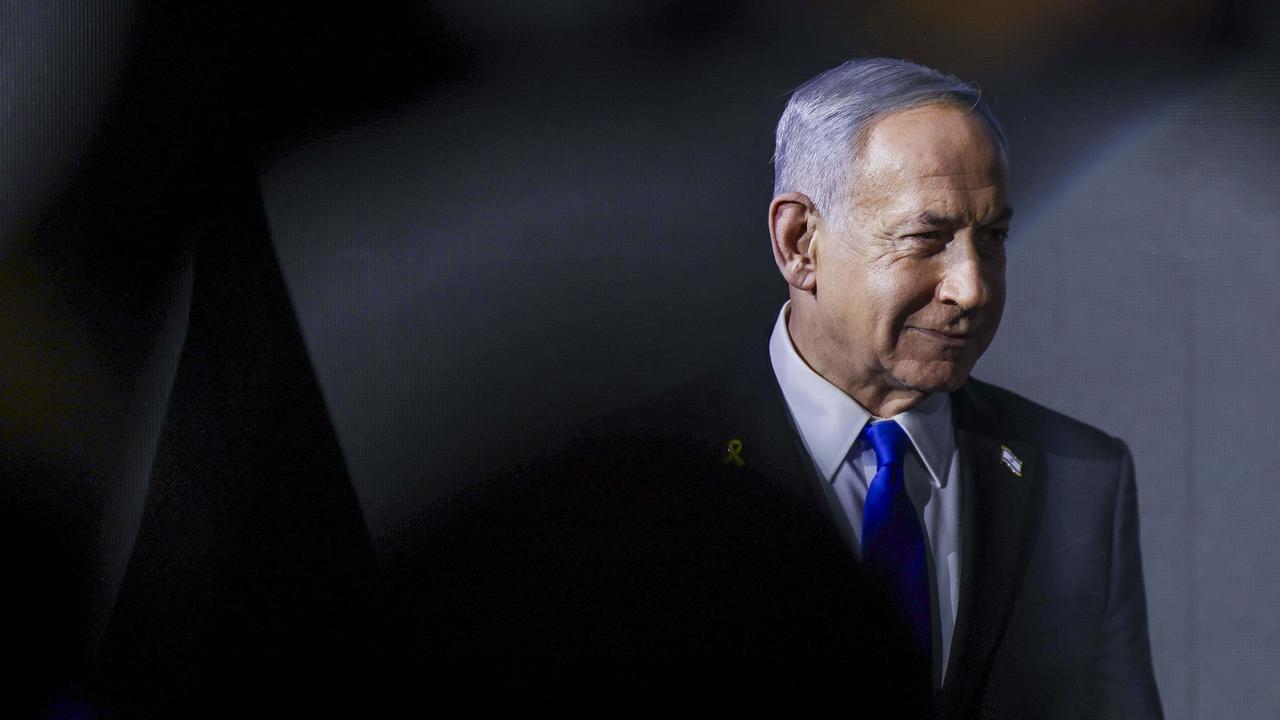
Mr Netanyahu hinted that the conflict could soon be over.
“We are on the verge of completing this war… when that happens, I think we will have tremendous opportunities to expand the peace,” he said.
“We will win.”
Earlier this week, Home Affairs Minister Tony Burke said Israel was increasingly isolated on the international stage.
“Strength is not measured by how many people you can blow up or how many children you can leave hungry. Strength is much better measured by exactly what Prime Minister Anthony Albanese has done,” he told ABC Radio National on Wednesday.